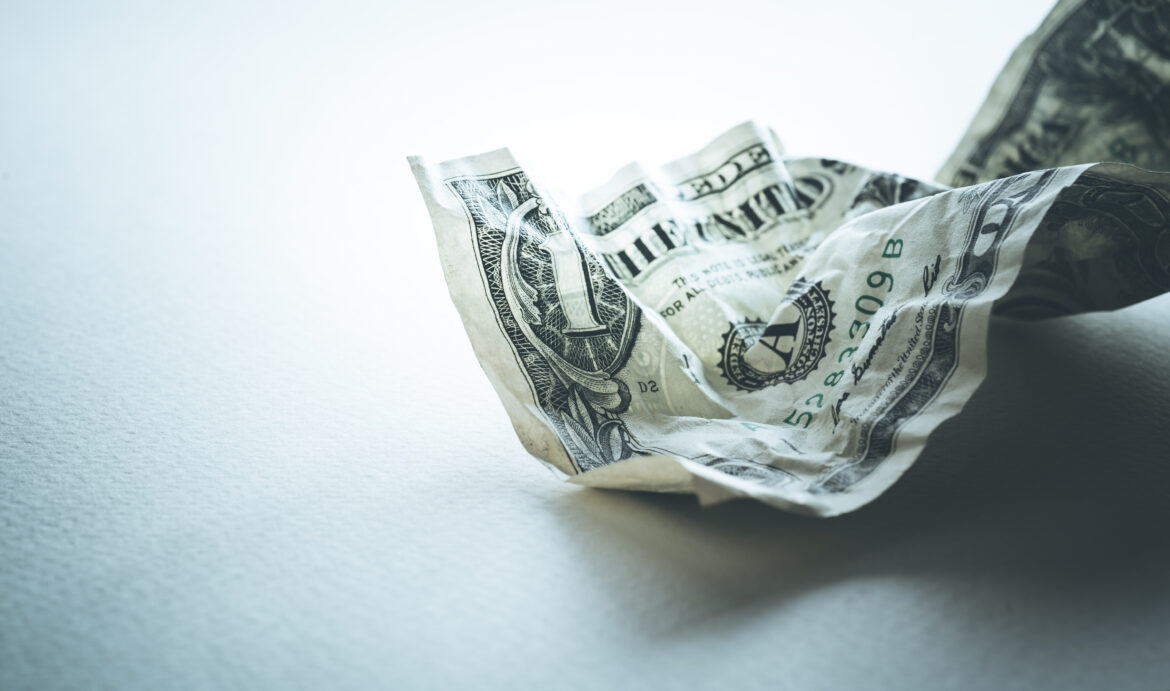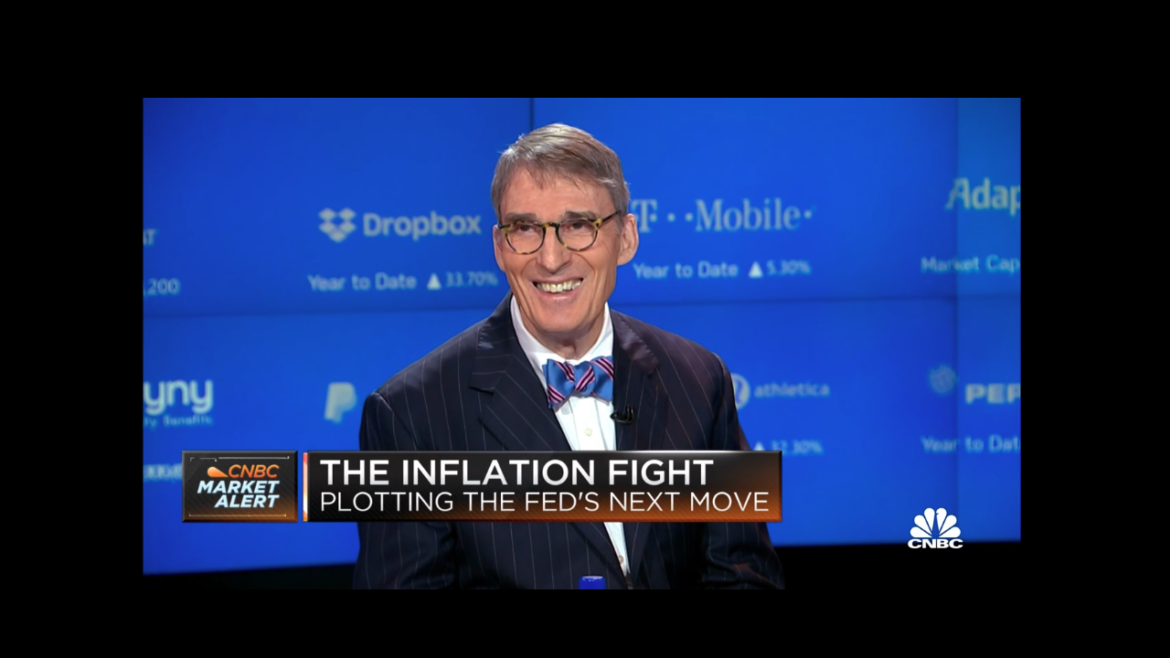Gold has all the potential to go unprecedentedly high. But silver will be gold on
Site:
Precious metals news
The economy is great! Inflation is dead! We're on our way to a soft landing! We keep hearing messages like this over and over again from Fed officials, the Biden administration, academics, and financial news pundits. But doesn't the spin seem a little detached from reality? In this episode of the Friday Gold Wrap, host Mike Maharrey exposes the political class's gaslighting operation. He also talks about the big selloff in gold this week.
Amid the cost-of-living crisis, the Royal Mint reported a surge in gold and silver investments as alternatives to disappointing traditional savings and stock returns. First-time precious metal investors increased by 17% in the first half of 2023, with gold investments up by 10% and silver by 16%. Andrew Dickey, the Royal Mint's director of precious metals, noted that individuals are diversifying portfolios and seeking "safe haven" assets like gold, which has seen its price rise by nearly 65% in the last five years.
Sep 28, 2023 - 12:41:18 PDT
In the event of a US recession, Treasury 10-year yields might approach a robust 3%, and the S&P 500 might stabilize around 3,000. This adjustment aligns with the anticipated movement of copper towards a solid $3 a pound. The rise in precious metals compared to industrial metals is consistent with a slowdown in global growth, positioning gold and other precious metals favorably. Bloomberg Economics anticipates this trend to become more evident by year-end.
A noted financial analyst argues that despite the historical advantages of capitalism, the average living standard is now declining because of heightened government interventions, including taxation, regulations, and inflation. He refers to the present economic scenario as the "Silent Depression" and anticipates it will escalate into a "Greater Depression," surpassing the severity of the 1930s. Emphasizing the shrinking middle class and the perils of uniform media perspectives, he suggests delving into economics and stockpiling essential commodities as pragmatic measures against inflation. He cautions about the deepening repercussions of this under-recognized economic slump.
Ray Dalio, founder of Bridgewater Associates, warns of a potential U.S. debt crisis, especially as U.S. debt surpassed $33 trillion. The rise in debt, accelerated by a 50% increase in federal spending from 2019-2021, has heightened concerns of a slowing economy and rising interest rates. Dalio predicts economic growth could plummet to near zero. This comes amidst fears of a government shutdown if a spending bill isn't finalized by October 1.
The financial news media, previously optimistic, are now blatantly pessimistic. Past assurances about inflation control and a "soft landing" for the economy have been replaced by stark warnings. Stock markets are faltering, fears of a recession loom, and the U.S. economy shows signs of strain. Today's narrative starkly contrasts past predictions, casting doubt on the media's credibility.
JPMorgan strategist, Marko Kolanovic, warns of looming downturns as the S&P 500 nears his 4,200 target, drawing parallels to the 2008 crisis. He cites challenges like overvalued markets, tech stock gains concentration, and tighter financial conditions, including rising interest rates. With increasing delinquencies in credit and loans, Kolanovic urges caution, noting that current market chatter mirrors pre-2007 crisis.
The tale of the Roman Denarius offers not just a glimpse into the past but also a warning for the future...
Sep 28, 2023 - 07:41:17 PDT
The S&P 500 Equal Weight index has plummeted, erasing gains and revealing a bleak broader market concealed by the performance of tech giants like Nvidia, Tesla, and Apple in the standard S&P 500. Dominance of these few stocks heightens market vulnerabilities. As the Federal Reserve scales back with a record QT nearing $1 trillion and prolonged higher rates, the markets are strained. QE once boosted markets, but QT is now eroding them.
Pending home sales in August plummeted 7.1% MoM, drastically worse than the forecasted 1% drop, marking the sharpest decline since September 2022. This downturn mirrors the record lows during the COVID lockdown. Every region faced setbacks, with some regions hitting their weakest since 2001. Experts warn of a bleak outlook with rising mortgage rates, raising concerns about the housing market's prolonged instability.
With the Asian hegemons undoubtedly able to introduce gold standards, where does that leave the dollar?This article describes just how precarious the fiat dollar’s position has become. For now, the dollar appears to be buoyed up by rising bond yields. However, as they rise further portfolio losses for foreign investors are likely to increase, leading to dollar liquidation. It is not generally realised how many dollars and dollar securities are owned by foreigners, the bulk of them being held outside the US banking system. And the quantity of foreign currency owned by Americans to absorb this selling is very small in comparison.Higher interest rates and bond yields also threaten to destabilise the banking system, a problem equally faced by the Eurozone, the UK, and Japan. But how can the US Government protect itself from this danger?The only answer is to admit to the end of the fiat era and put the dollar back onto a gold standard. However, the US Government does not h...
The U.S. economic outlook darkens as the Bureau of Economic Analysis (BEA) releases revised Q2 GDP data. Personal consumption, a pivotal component of GDP, was a significant letdown. Initially expected at 1.7%, it came in at just 0.8%, a dramatic drop from Q1's 3.8%. This marked the worst consumer performance since the COVID-ridden Q2 of 2020. Despite headline GDP figures meeting expectations, the underlying data indicates severe consumer weakness. Factors like the resumption of student loan payments, potential federal government shutdowns, and reduced auto production only magnify concerns for impending economic decline.
Find out how the average taxpayer owes a staggering quarter-million dollars in taxes!
 Inflation Hits Workers’ Wages as 60% Of Americans Are Still Living Paycheck to Paycheck
Inflation Hits Workers’ Wages as 60% Of Americans Are Still Living Paycheck to PaycheckSep 28, 2023 - 05:55:44 PDT
Amid persistent high inflation and interest rates, 60% of U.S. adults live paycheck to paycheck. With the consumer price index up 3.7% from last year, stagnant wages strain households. The Federal Reserve's 11 rate hikes haven't stemmed inflation, severely impacting lower-income individuals. Essential costs continue to rise, and 70% of Americans report financial stress, with less than half having an emergency fund.
Initial jobless claims stood at 204k for the consecutive second week, noticeably below the anticipated 215k. This marks the lowest non-seasonally-adjusted claims since September 2022, registering at 175.
While anomalies such as the Ohio fraud and Minnesota extensions seem largely rectified, claims in Ohio surged, only surpassed by California.
Continuing claims remain under 1.7 million. Yet, with The Conference Board survey indicating a declining labor market and stringent financial conditions, it raises questions about the accuracy of current claims data. When will it truly mirror the reality?
In the world of politics, there's often more to the story than meets the eye.
The Federal Reserve has pushed interest rates to over 5%. At the most recent FOMC meeting, it indicated that it may have to hold rates higher for longer. But the mainstream remains unconcerned. The narrative is that the Fed has successfully raised rates to fight inflation and is now guiding the economy to a "soft landing."In a nutshell, the mainstream financial media seems convinced the US economy has dodged a recession. Meanwhile, the average American seems less than convinced.So, who's right?
All eyes are on the Federal Reserve, and people are wondering, what will it do next? The messaging coming from the central bankers is that they will need to keep interest rates higher for longer. But is that possible given the economic conditions and all of the debt in the economy?Investment and economics writer Jim Grant appeared on CNBC's Squawk Box to discuss the Fed's inflation fight and its impact on the economy. He said we ask too much of the central bankers. After all, they are only human.
 WHAT THE OIL INDUSTRY DOESN'T WANT YOU TO SEE: OPEC, Non-OPEC & USA Oil Production & Decline Rates
WHAT THE OIL INDUSTRY DOESN'T WANT YOU TO SEE: OPEC, Non-OPEC & USA Oil Production & Decline RatesSeptember 28, 2023
While the oil industry likes to focus on the near-record amount of oil supplied to the world, they fail to warn about the massive annual decline rates. Thus, continuing to keep global oil production at such high levels will only devour proven reserves at a quicker pace...
Sep 27, 2023 - 12:57:56 PDT
**Gold's Market Dynamics**
Unlike consumer goods, gold isn't consumed but held. Its market is unique: gold holders can be both sellers and buyers. An uptick in trades doesn't necessarily mean higher demand. Gold's supply represents owners' willingness to sell at certain prices. Miners, despite their minor role, accept market-set prices. Gold's value hinges on both its historical monetary status and the balance between current owners' and potential buyers' assessments. Misunderstanding this leads to inaccurate analysis.










